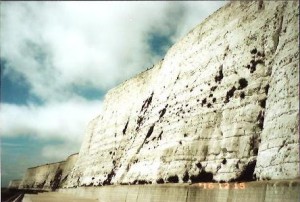You must have experienced this. All of sudden, you found some totaly trivial word somehow strange. If so, congratulations. This bizarre thoughts are in fact- moments of enlightement.
And you are on the right website. This pet project, created by an amateur historian, and an amateur linguist, is here to unveil true meaning of basic english words such as look, follow or write, to expel some myths, and explain the British public, what it actually means british.
Our theories are not out of thin air, in the past 25 years we saw many breaktroughs in the field of genetics, so we can see now, how interconnected we Europeans are- and it looks like there is sudden rise of eastern-european genes (compared to older samples) in late roman / early medieval times. (So we have culprits). But this is only relatively new invasion. How to explain the fact, that DNA of mesolithic hunters/gatherers from Western Europe revealed dominant paternal lineage- I2a1b/ which is commonest in the Eastern Europe / Balkans. This article written in flawed english is not ment to frustrate british public even more (who is already demoralized by unlimited flow of Eastern- Europeans after 2004, with whom they have pleasure to compete on the labour marked). Nor to spread any unbased theories. We just think that eastern-european component in english is so obvious, that someone has to finally explain it. Some words on this list are well-known cognates, some of them- unexpected and hidden for millenia.
Jan Klasovity
Co-authors:
Oskár Cvengrosh {oc}
Ján Klasovitý {JanK}
“We have already begun to list the mass, the almost endless list, of worldwide items for which orthodoxy (a) has no explanation whatsoever; and, which it (b) either deliberately, or out of pure stupidity, chooses completely to ignore.” Stan Gooch
Britain- So many unknown heroes/famous villains/abandoned soldiers in muddy trenches etc. died throughout centuries in Empire’s name. Yet the origins of Her name remain unclear.
As for who.
Believe or not, Britain might owe its name to its coastline, and is cognate to norwegian word bratt, meaning steep, vertical, slovak prudky (steep, intense) as well as number of toponyms in the Eastern Europe such as Bradlo, Brtkovica, Brdy (names of hills), Vratna dolina (canyon in northern Slovakia), and also possibly cities of Bratislava (placed in steep terrain above Danube river, romanian Brasov (surrounded by mountains), Budapest (Brdapest, neighbourhood Buda is placed hilly terrain), and——– Brighton!
Brighton (city on a steep/bratt hillslope, where chalk cliffs begin to rise from the sea) might have also derived from another easterneuropean word- breh (shore, bank).
Anyhow, it is more than likely that Britain owe it’s name to it’s coast (regardless of what word is behind it). It is not controversial claim at all, since the oldest name of Britain recorded- Albion (from greek meaning white)/ has (surprise, surprise) something to do with the white color of Dover cliffs.
“For coast is where the story of the island nation, its history, its geography, and of people is told most vividly. It’s easy to think that the coast is merely where the country stops, where the land falls into the sea. In fact, our coastline is in the very hearth of our shared history, the source of so much national wealth, and where Empire was born”.
Nicolas Crane, BBC Coast series
Does anyone believe, that steep cliffs of Britain that protected this land from invasions for millenia, and provided livelihood to its inhabitants, left no trail in english language?
Brighton cliffs in Britain. There are hundreds of toponyms across Europe with root brit/brat/ brett ect., which etymologists chose to ignore.

And how about Hebrides? Some claim it comes from viking “Havbredey”, meaning “islands on the edge of the sea”. Well well, I am not born snandinavian, but it sounds very unscandinavian. I would bet for something like Havbrattoyene, if it makes any sense at all. Regardless of that, Hebrides have very rugged coastline indeed.
Contemplating origins of French Brittany, I concluded, that it has to have rugged coastline as well.
And look!
Word proud might also be cognate of bratt- proud person is simply one who goes stretched (like prut- another easterneuropean word meaning young branch of a tree (which- accidentaly off course- grows vertically- to get asap to sunlight to photosyntetise). Obsession with hierarchy (=vertical social order), ranks, and adherence to corporate rules- no matter how senseless they are- this is exactly what makes British British! (This ancient mindset, perhaps inherited from Normans is exactly what gave rise to modern corporations.) Brit- it might turn out- has double meaning! Country of steep shores and proud people!
Such thoughts, however, are not necessary- british coastline is steep enough to be the most likely explanation of the nation’s name. This is also bittersweet news for inhabitants of the edgy island- if all this proves correct, it will mean that Britain’s name has not derived from a name of a divine being, Celtic god, or a pre-historic hero, and has nothing to do with tatooed people (Prittanoi), as some suggest. This explanation is small beer.
Although all mentioned above is not controversial at all, I dare to add something more dubious: what with Brazil…etymology unclear (although there are some theories), one of the first places that Portuguese sailors/plunderers come across to, was Rio de Janeiro (discovered in 1502)- hilly /bratt terrain all around, since I watched City of God by Fernando Meirelles and heard slovak/serbian sweary word in what was supposedly brazilian poruguese, I am extra paranoid. Portuguese sounds very slavic indeed even though its incomprehesible for any eastern European. There was once Suebic kingdom on the atlantic coast of Portugal/Spain, founded by people who for millenia were considered germanic.
By the way, germanic. Does anyone in the germanosphere know what it exactly mean? They do not. Nor roman historians did. How about theory (or rather fact) that Oscar Cvengrosh, most controversial historian in Slovakia and person I teamed up with (I would never worked with anyone who is non-controversial) came with: German is follower of God of Thunder- Herm. Herm means thunder in eastern- slovakian dialect. Names such as: German, Hermann, Greek Hermes (God of Thunder), Hermiona etc.- they are all derivations of one (with all modesty) slovak word- Herm/Hrom.
“The layer of the Türkic words in English and Germanic languages ostensibly left by the Sarmatian tribes belonging to the super-ethnoses Goths and Vandals is apparent to a most inattentive casual observer: do, make, talk, eat, write, tell, kill, earth, dawn, body, this, and little affixes that make English the English. The respected Professor and writer author should have definitely noted a prominent particle -or/-er in all three of his own titles, and the word writer even is a compound of two Türkic words, rizan = scratch ~ write and -or/-er = man. With 1/3 of the Germanic languages “of unknown origin”, the assertion on the absence of permanent linguistic trace is preposterous” ( Lockwood, 1969, in Krantz, 1988, p. 67)
(England’s 18th century scientists) “had advantages today’s scientists must envy- an enormous range of interests, a vast breadth of knowledge, the freedom to share everything they learned and the luxury of time to think, experiment and pursue other interests without professors, managers or funding bodies breathing down their necks. Who today could spend 30 years following a hunch?” Stephanie Pain, Review of The Invention of Air by Steven Johnson, Newscientist, 5 dec 2009
